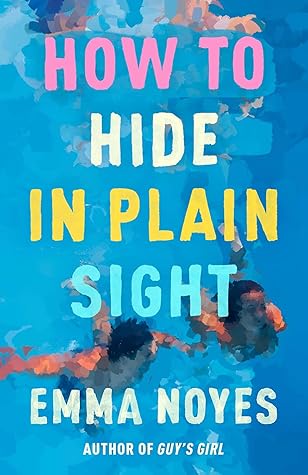More on this book
Community
Kindle Notes & Highlights
At every moment, I live half in this world and half in another. One world is physical, the other invisible. I’m perfectly capable of remaining engaged in the physical one—the “real” world, the one with action and dialogue and the ever-present passage of time—while silently running through my standard list of Worries, one leading right into the next, like the endless all-caps ticker that sprints across the bottom of a newscast.
The ticker contextualizes the physical world. Provides the set of rules by which I must live. The Worries might have nothing to do with what’s actually happening at the moment—in fact, most often they don’t; most often they’re leftovers, past wrongdoings or passing thoughts onto which I graft meaning. And although I might look happy on the outside—I might smile with my teeth and laugh with my belly and dance with my feet—at every moment, inside my mind, the ticker runs on.
“Maybe this is a bad example. There’s other stuff. Worse stuff. But it’s not really about that. It’s…it’s…it’s these thoughts. They won’t leave me alone. No matter how many times I tell them to. And they feel, like, weirdly separate from me, you know? Like…they don’t sound like me. Or, at least, they didn’t when they first started. Now…Now, I…I can’t really tell the difference.”
At the time, it was perfect. To have your best friend so seamlessly absorbed into every aspect of your life? It’s every child’s dream. But as I watched him laugh and plot and generally take center stage among the family whose acceptance I had so desperately craved as a child, the same family who clearly hadn’t forgiven me for my yearslong absence, I felt this creeping dread, this pit in my stomach that felt like recognition: Had I been so easily replaced?
As I lay on that rock, I couldn’t help but come back to a question I had pondered a thousand times in my life: How do you form meaningful relationships with a family you didn’t grow up with?
If your oldest brother was a goat fucker, it doesn’t matter if you commit your entire life to saving the planet. It doesn’t matter if you’re hotter than a supermodel or faster than Usain Bolt or ordained by God as the second coming of Jesus Christ himself. You’ll always just be the sister of a goat fucker.
Bodies don’t lie. And I think my body knows something I don’t.
What does OCD feel like? Well, that’s the trick. After a certain point, OCD isn’t a feeling; it’s just your life.
We lie there in silence. It’s a new kind of silence. A third kind. This one trembles. It feels as delicate as a castle built of sand. “I love you,” I whisper into this third silence. “And not in the way I usually mean it.” Manuel’s arms tighten. “I’ve never meant it any other way.”
Dr. Droopy once described self-hate as “addictive.” I thought that was ridiculous. How the hell could you crave self-hate just as much as you crave a chocolate cupcake or a drug-induced high? But I get it now. I do. I don’t know how to turn it off, but what I do know is this: I’m addicted to the Worries. I’m addicted to self-torture and self-hate and any other version of the self that reaffirms my belief that there’s a deep, disgusting darkness within me.
DID YOU KNOW YOU CAN be addicted to nothing? To the sensation of nothing? You can crave the ability to look inside yourself and find nothing, no guilt, no sadness. No anxiety or terror or unfounded doom. No memories threatening to eat you alive from the inside out. That’s what obsessive work gave me. That was its blissful result. It cleared everything out, leaving only space for the next task and the next and the next.
OCD isn’t about washing your hands. It’s about living in constant fear of the outside world or, in many cases, of yourself. It’s a mind that attaches itself to whatever obsession it can find. One stuck in permanent fight-or-flight. One that can’t stop looking for tigers, even though it left the jungle millennia ago.
Where logic talks, OCD screams.


